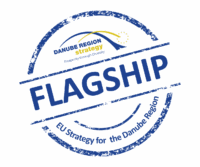
Projects: EQAVET-NRP-RO 2019 (01.04.2019 – 31.03.2021), EQAVET-NRP-RO 2021 (01-04.2021 – 31.08.2023)
Submitted by / EUSDR Priority Area(s): PA 9 People & Skills
At system level, the project beneficiary (Romanian National Centre for TVET Development) develops a national programme on quality assurance (QA) in vocational education and training (VET) for the VET school staff, organises and supports a peer review of the system, that will focus on the QA of the mechanisms established for the quality assurance of the design, assessment and review of qualifications and organises national events to inform all relevant stakeholders on the project’s developments. At provider level, the VET schools from the partner networks formed in the previous QANRP project are continued to be supported, by: training of teachers with responsibilities in quality assurance, testing methodology and peer review tools, adapted to the national context, supporting the schools to use the European instrument SELFIE, to develop improvement plans and to collect feedback from students on the provision of their training programs, with a focus on the evaluation of the learning outcomes. Because the communication and involvement of as many stakeholders as possible is important, national information sessions will be organised and the results of the project will be promoted through different communication channels (GNAC site, “Alege-ți drumul” platform, Facebook, etc.). Regarding the collaboration with other Member States and the strengthening of mutual trust, a peer review at system level on the monitoring of graduates and skills forecasting will be organised. The Romanian experts also participate in peer reviews organised by other QANPRs and in other European events.
Objectives
- Contribute to improved educational outcomes, skills and competences, focusing on supply and evaluation of learning outcomes
- Strengthen of VET students’ involvement in the revision and improvement of VET programmes
- Improvement of VET schools’ capacity to apply QA mechanism and its instruments, with a focus on the additional elements of the new EQAVET
- Develop international cooperation on QA in VET by providing support for the participation of EU peers in a system peer review and of the project implementation team in events organised at EU level
Need and (expected) impact
Romania has been one of the first countries who adapted the EQAVET Recommendation of the European Parliament and the Council to the national context. In 2009, the National Quality Assurance Framework in TVET has been developed on the basis of the European Quality Assurance Framework in VET (EQAVET), to which it is perfectly compatible in terms of principles, methodology and instruments. All VET schools apply the specific tools for quality assurance in VET: Self-Assessment Handbook and Inspection Handbook. The Self-Assessment carried out at school level is completed by external monitoring of quality, by which the representatives of the social partners and school inspectorates guide and support the schools in the process of quality assurance, check the way in which quality requirements are observed and make proposals for quality improvement.
The new Recommendation on VET for sustainable competitiveness, social fairness and resilience, adopted in 2020, includes new areas of interest, such as the quality of qualifications and learning outcomes, certification and assessment, stakeholders’ consultation, the role of teachers and trainers, foster of international cooperation and exchange of good practice. This new approach at EU level is coherent with the national developments in VET in the last years, therefore requiring a set of specific actions to further develop the existing QA tools, to train VET staff in line with the new developments in the field and to strengthen cooperation at national and international levels. The project aims to:
- Strengthen the VET students’ involvement in the assessment and improvement of the VET provision. The collection of VET students’ feedback on the quality of their VET programmes has been done on a random basis by their teachers and, with the support of the previous QANRP project, a digital platform for students’ feedback collection has been set up, but there is a need to make this platform more user-friendly in terms of access and use of information collected and to further expand its use;
- Improve the application of the Review and Improvement phases of the EQAVET quality cycle (Plan –Do –Check- Act) and mainstream the use of the EQAVET criteria, at system and provider levels. In the 10 years of implementation of the QA mechanisms, at system level and at VET schools’ levels, a lot of experience was gained in applying the QA cycle, but although the first two phases of the QA cycle are running smoothly in terms of Planning and Implementation of QA mechanisms, for the last 2 phases of the QA cycle (Review and Improvement) there is a need for further support and peer guidance. Furthermore, the new Recommendation introduced additional criteria and quality descriptors and for their implementation VET schools need guidance and support;
- Expand cooperation on QA in VET at both system and provider levels. At VET schools level, inter-institutional assistance networks have been set up on all major economic sectors, so that schools could cooperate in activities such as monitoring, collecting evidence, sharing experience. At system level, the Romanian QANRP has been involved in exchanges of good practice at EU level, working groups, study visits to other QANRPs. All these activities have led to significant improvement, but there is a need to be continued and further developed, to keep up with the dynamic of VET developments.
Short term impact: The VET students who will use the feedback platform will have the satisfaction that their voice is listened to when evaluating the training programmes and their accountability on their own process of learning will be increased.
Long term impact: Increased accountability of VET students in quality assuring VET provision, as after the end of the project, the feedback platform will be used by all VET schools to collect feedback from their students.
A success of the EQAVET-NRP-RO 2019 project was the exchange of experience from the 60 mutual learning activities organised at the level of the partner networks of VET schools in which teachers, students and company representatives participated.
Macro-regional dimension
National students and teachers from VET schools, members of the partnership networks. Peers from: Finland, Malta, Latvia, Slovakia and Slovenia will participate in the peer review at system level. Participation of Romanian experts in peer reviews in other EU Member States (Croatia, Lithuania, Malta and Belgium)
Stakeholders involved
Students and teachers from VET schools in partner networks, peers from other EU Member States.
Budget and Funding
EQAVET-NRP-RO 2019 – EUR 120.379
EQAVET-NRP-RO 2021 – EUR 203.889 (estimated budget)
Further information
https://gnac.montivagant.ro/activitati-curente/proiecte-nationale-in-derulare/asigurarea-calitatii-in-educatia-si-formarea-profesionala-la-nivel-european-si-la-nivelul-punctelor-nationale-de-referinta-eqavet-nrp-ro-2019-2021/;
https://gnac.montivagant.ro/activitati-curente/proiecte-nationale-in-derulare/european-quality-assurance-in-vocational-education-and-training-national-reference-point-ro-2021-eqavet-nrp-ro-2021/
Contact
Dana Stroie – deputy NCTVETD, ; Carmen Musat – project manager,

>> Download Certificate <<



